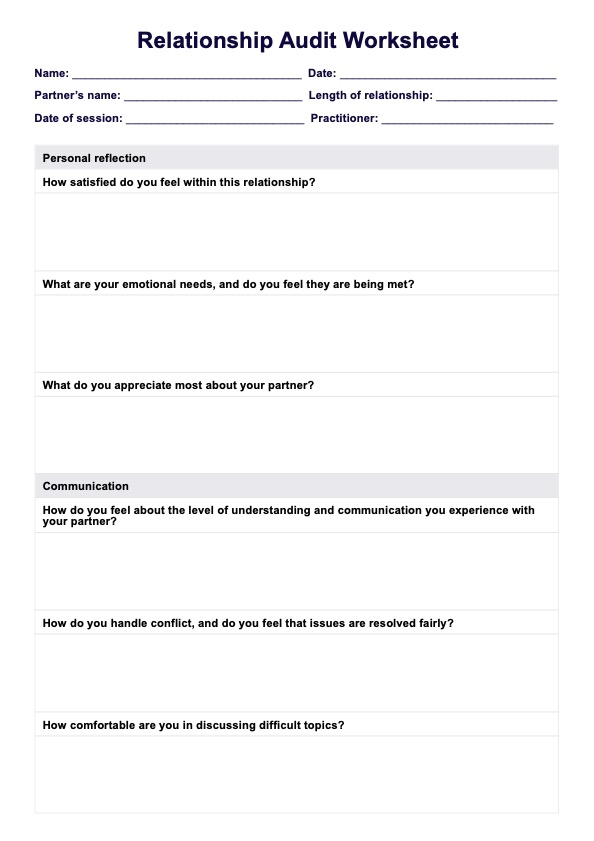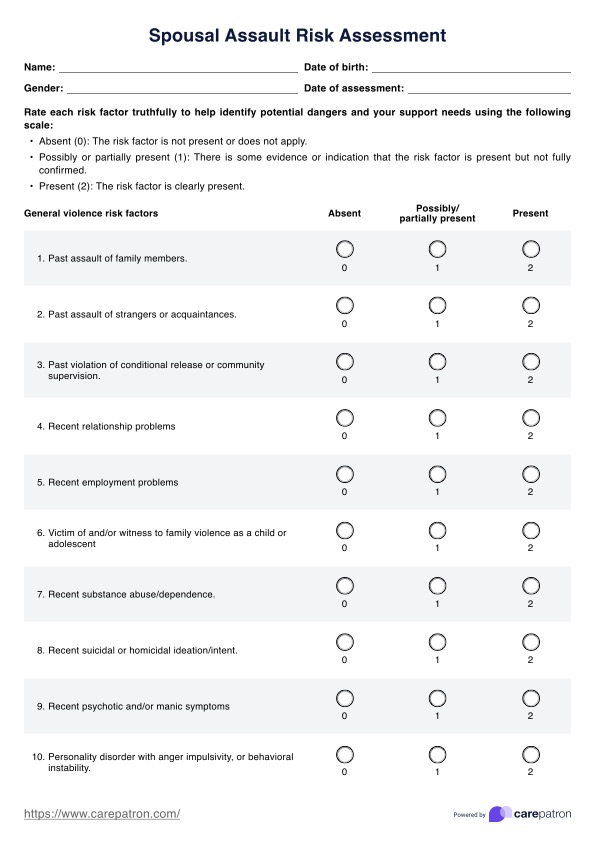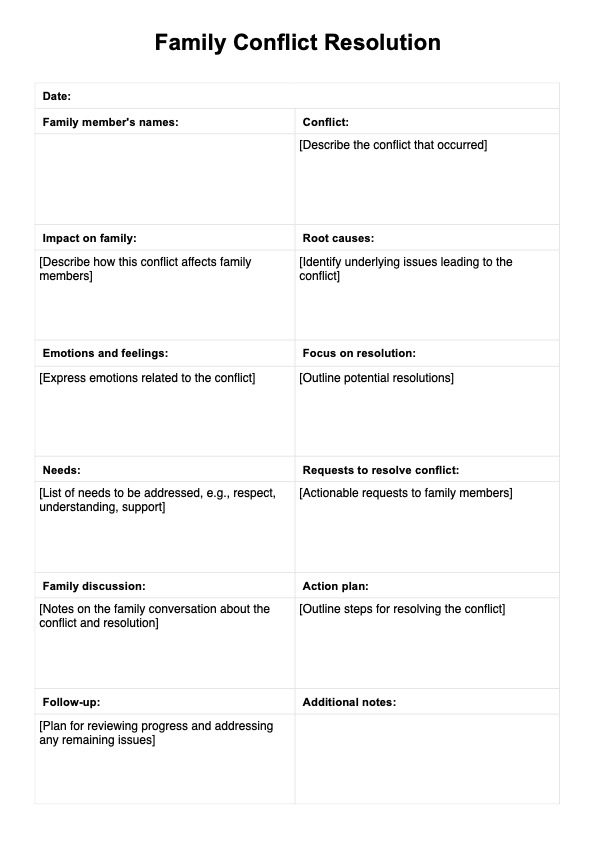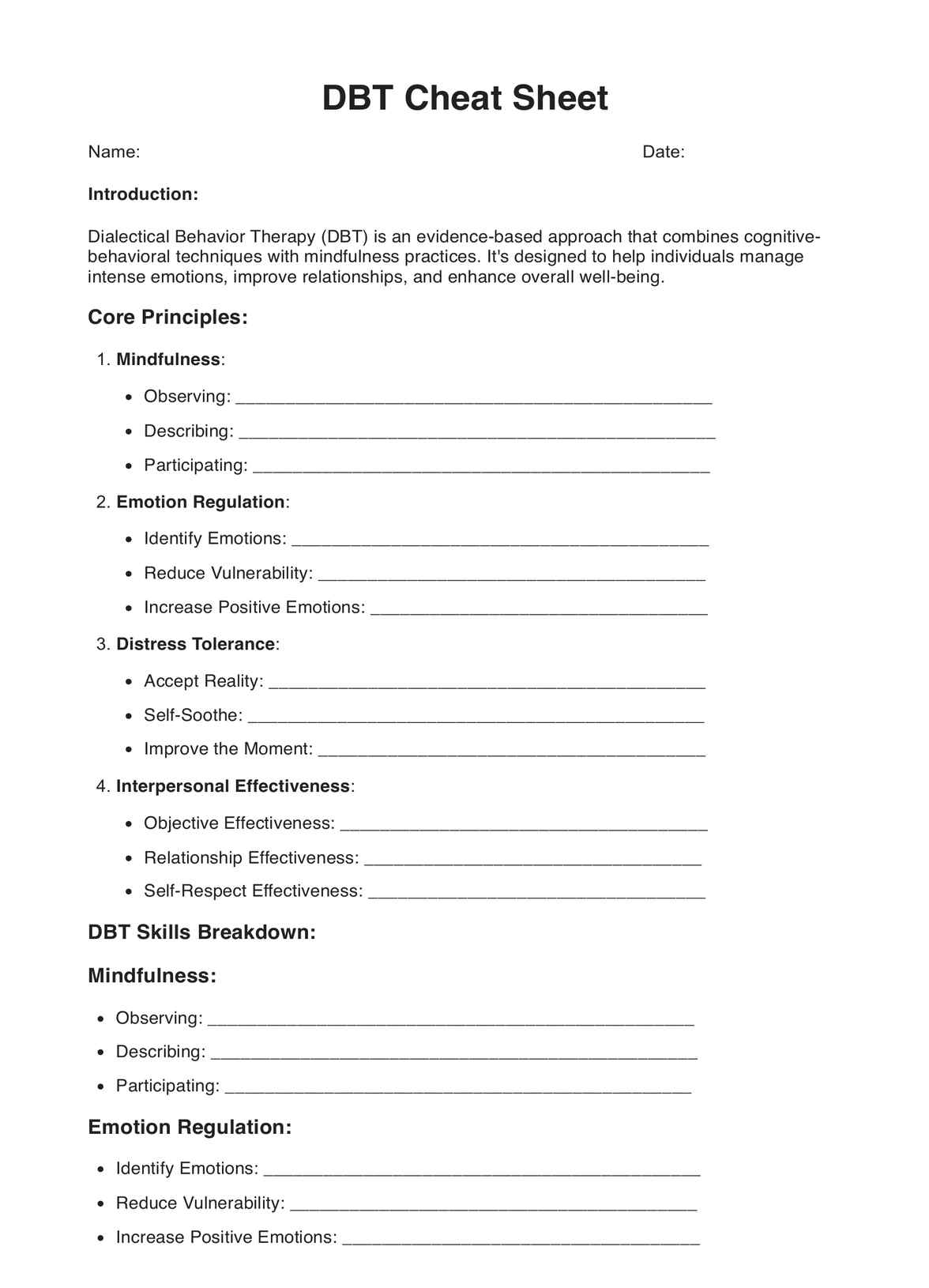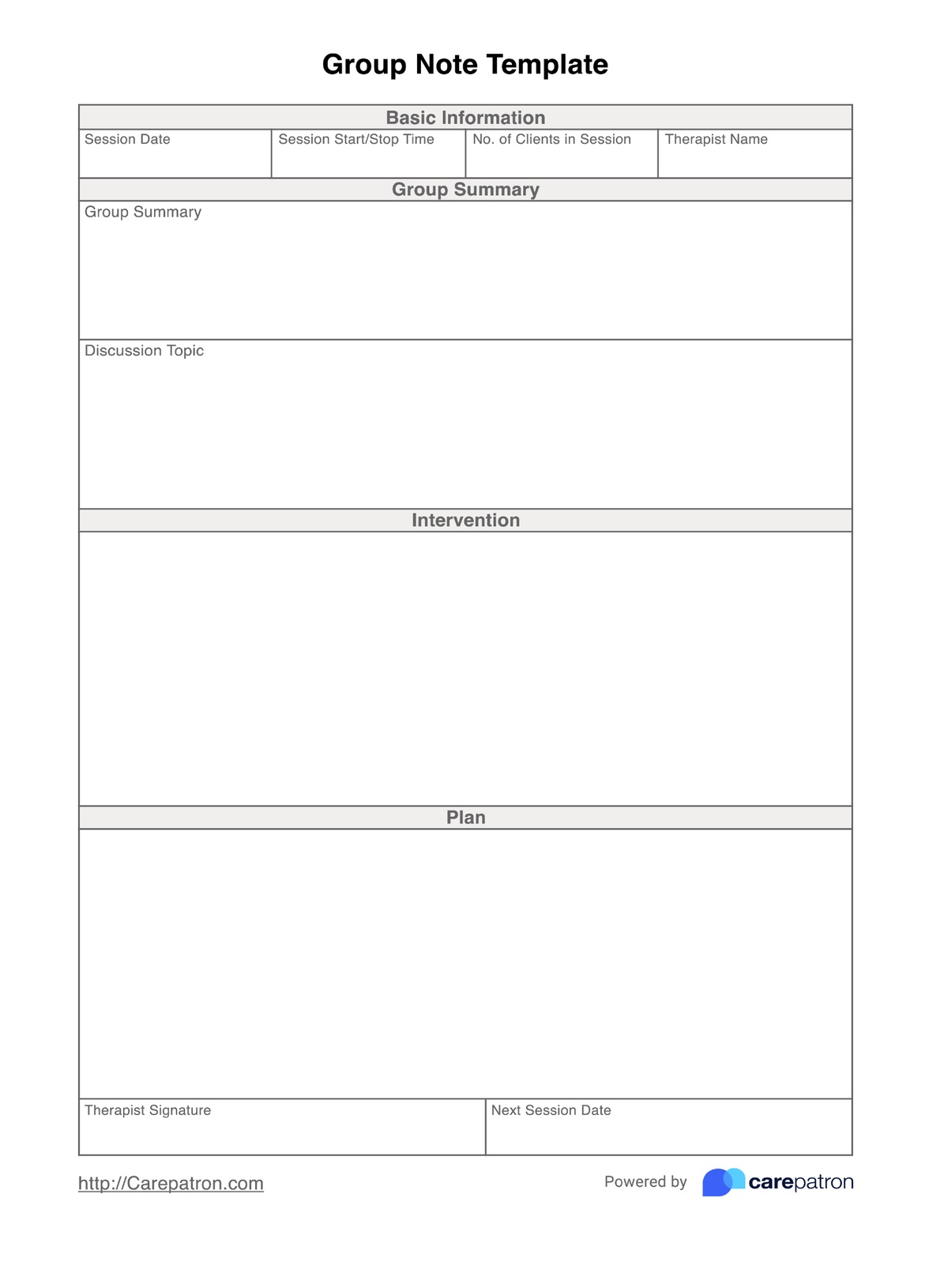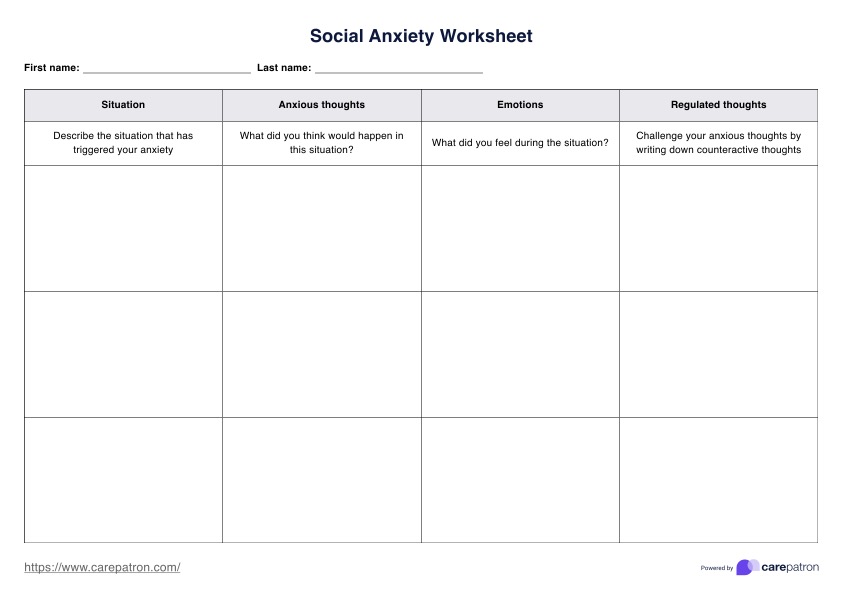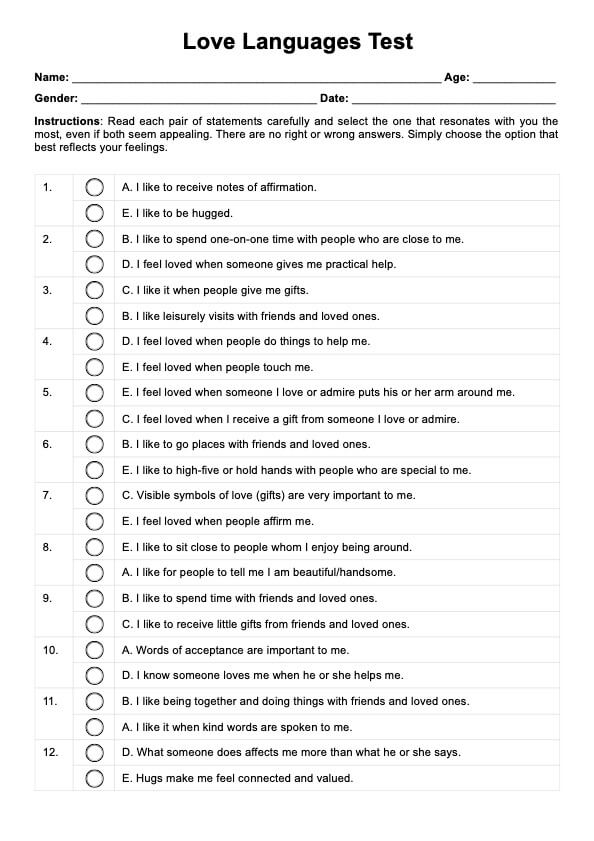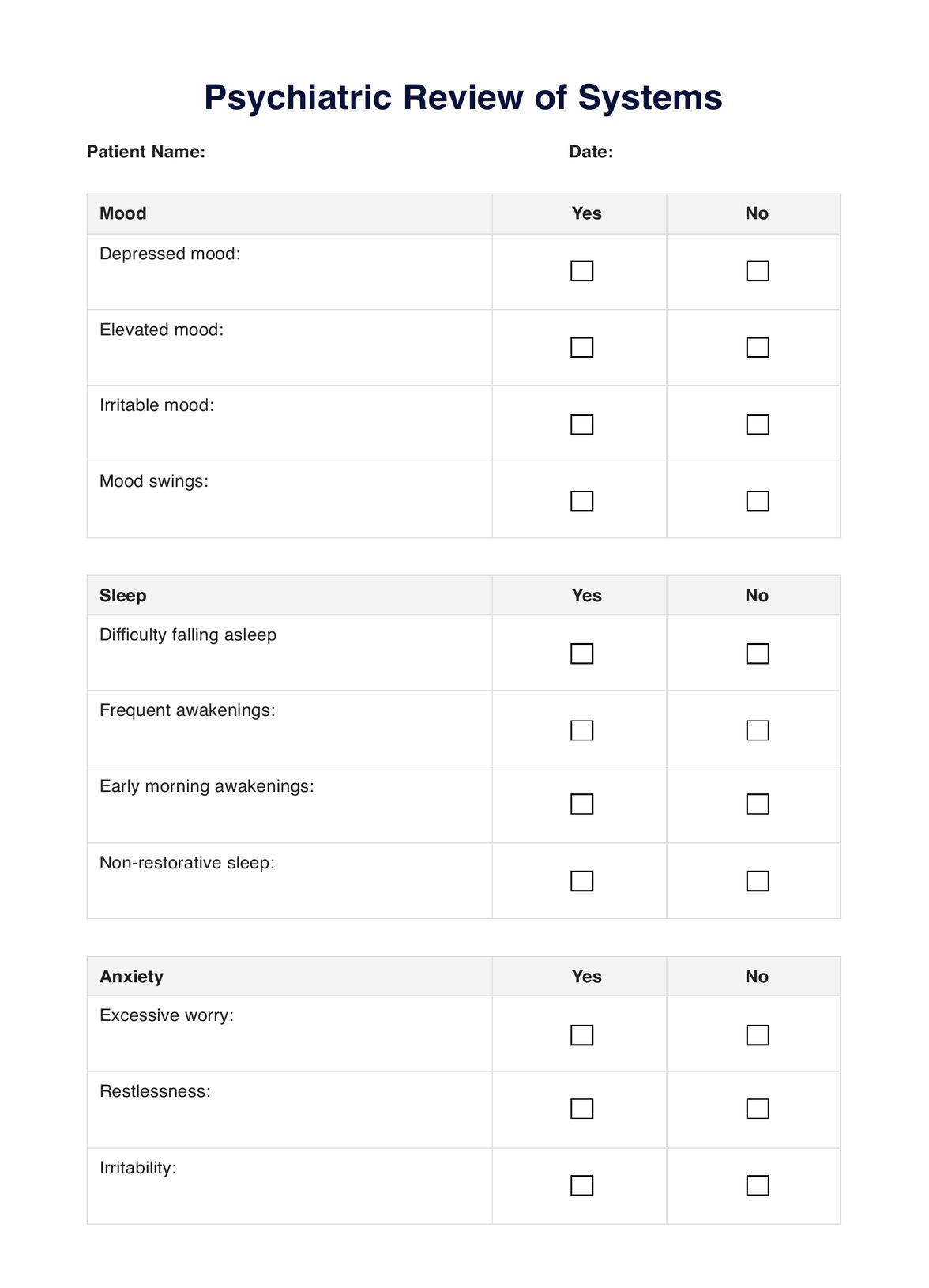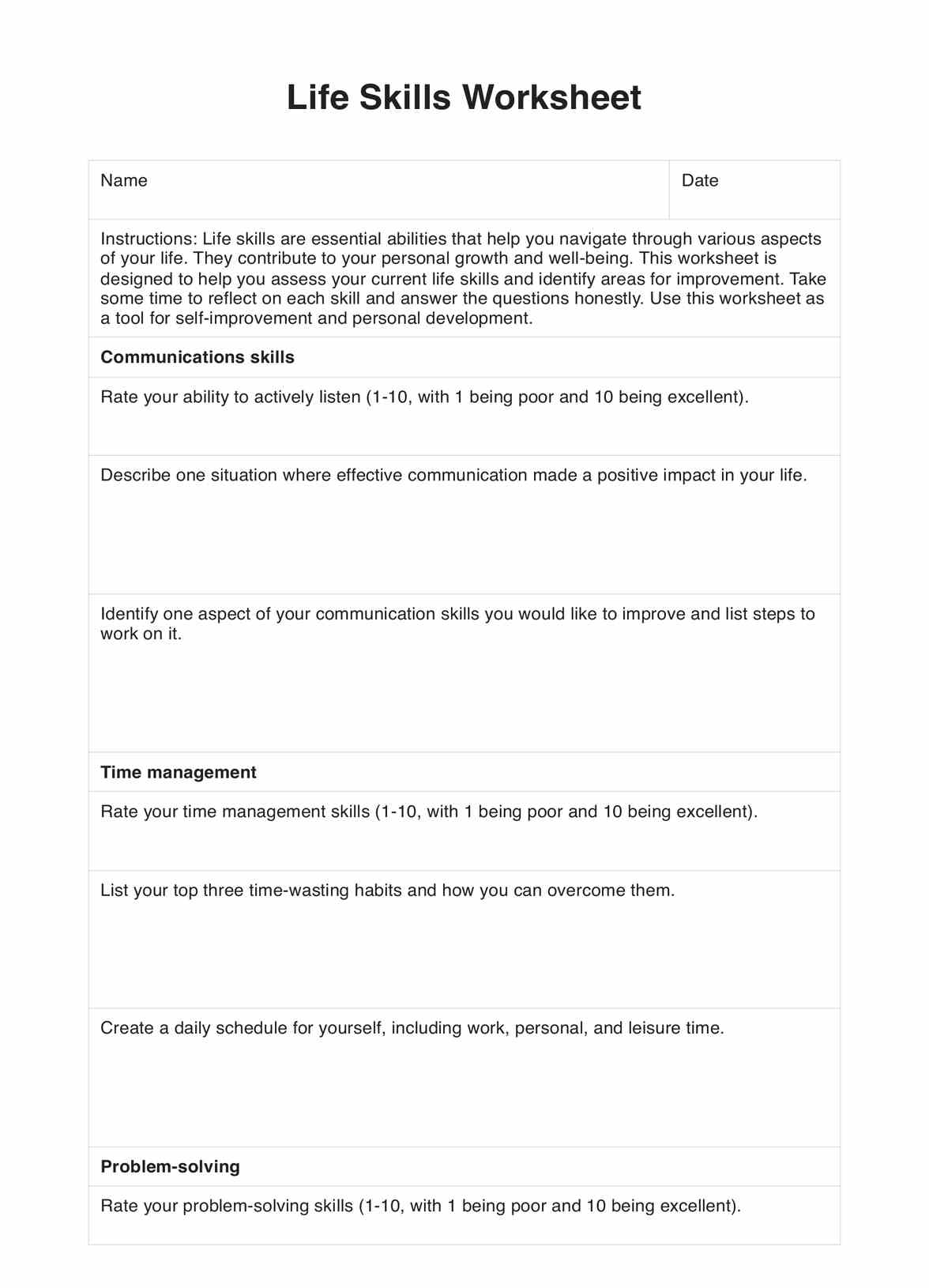You're Both Hurting ACT Worksheet
Explore the You're Both Hurting ACT Worksheet to address relationship challenges with empathy. Apply ACT principles for positive change.


What is Acceptance and Commitment Therapy?
Dealing with relationship problems requires a delicate and empathetic approach. Instead of blaming or criticism, it's important to initiate conversations with nonjudgmental descriptions. This creates an environment conducive to open communication, allowing both partners to express their feelings and concerns. By delving beyond surface-level emotions like anger and frustration, individuals can identify underlying emotions such as hurt, fear, or vulnerability, which often contribute to relationship challenges. This understanding sets the stage for productive problem-solving and encourages mutual growth.
Acceptance and Commitment Therapy (ACT) is an invaluable therapeutic approach in addressing relationship issues. It revolves around accepting negative emotions and experiences while committing to actions that align with personal values. This is particularly relevant to relationships, as ACT encourages partners to explore their own feelings, thoughts, and responses without judgment, promoting a non-hostile atmosphere for communication.
In , six fundamental processes guide the journey toward psychological flexibility and well-being. These processes include identifying personal values, committing to actions in alignment with those values, detaching oneself from thoughts, practicing cognitive defusion to lessen the impact of negative thought patterns, fostering acceptance of inner experiences, and engaging with the present moment.
When applied to relationships, ACT can help partners understand their emotions and reactions within the context of their values. This understanding fosters empathy and aids in comprehending the partner's perspective. ACT's emphasis on mindfulness and presence also encourages effective communication by allowing individuals to respond thoughtfully rather than reactively. By incorporating ACT principles, individuals can navigate relationship problems with greater emotional intelligence, promote understanding, and create a foundation for positive change and growth within the relationship.
You're Both Hurting ACT Worksheet Template
You're Both Hurting ACT Worksheet Example
How to use the You're Both Hurting ACT Worksheet
The You're Both Hurting ACT Worksheet can help you address relationship difficulties using the principles of Acceptance and Commitment Therapy (ACT). By guiding you through nonjudgmental descriptions, emotional exploration, and partner empathy, this worksheet facilitates a deeper understanding and constructive approach to relationship problems. Here's how to effectively utilize the worksheet:
Step 1: Get the Template
Begin by accessing the "You're Both Hurting" ACT Worksheet. You can use a physical copy or create a digital version for ease of use.
Step 2: Describe the Issues
In the "Issue Description" section, write down the main challenges you're experiencing in your relationship. Use nonjudgmental language to describe these issues objectively. This creates a foundation for open communication.
Step 3: Explore Emotions
Under "Painful Emotions," identify both surface-level emotions (like anger and frustration) and delve deeper to uncover underlying feelings (such as hurt, sadness, fear). This step fosters self-awareness and emotional insight.
Step 4: Acknowledge the Pain
In the "Acknowledging the Pain" section, recognize and accept the difficulties you've faced in the relationship. This step validates your experiences and emotions.
Step 5: Imagine Your Partner's Perspective
Consider your partner's feelings and reactions by stepping into their shoes. Address how the issues might affect them and explore their coping mechanisms, even those they haven't shared with you.
Step 6: Apply ACT Processes
Use the remaining sections to apply the six ACT processes to your relationship challenges. Identify values that matter to you (Values), commit to actions aligned with those values (Commitment to Action), explore how detaching from thoughts can aid navigation (Self as Context or Self as Observer), discover techniques to distance from negative thoughts (Cognitive Defusion Skills), practice acceptance (Acceptance), and find ways to stay present despite challenges (Present Moment Contact).
When would you use this You're Both Hurting ACT Worksheet?
The You're Both Hurting ACT Worksheet is designed to be utilized during those inevitable moments of relationship challenges. Whether you're encountering miscommunication, unresolved conflicts, or recurring issues, this worksheet guides you.
Imagine a tool that effortlessly guides you through expressing your feelings and concerns without judgment. It provides a roadmap to delve into your emotions and gain insight into those often hidden layers of hurt, frustration, or fear. Even more impressive, it encourages you to step into your partner's shoes, fostering a deeper understanding of their emotions and reactions.
But it's not just for personal use. This worksheet is a secret weapon for couples seeking healthier communication and more harmonious interactions. Whether you're newlyweds or seasoned partners, this resource promotes empathy and collaboration, making way for productive conversations and joint problem-solving.
And here's the best part: it's not just for couples. Healthcare professionals, therapists, and counselors can seamlessly integrate the "You're Both Hurting ACT Worksheet" into their practice. By incorporating the principles of Acceptance and Commitment Therapy, professionals empower their clients with a straightforward tool to tackle relationship challenges head-on.
Whether you're an individual looking to strengthen your connection or a healthcare professional aiming to guide others through relational hurdles, the "You're Both Hurting" ACT Worksheet is the go-to solution for fostering empathy, enhancing communication, and creating lasting positive change in relationships.
What are the benefits of using this You're Both Hurting ACT Worksheet?
The free You're Both Hurting ACT Worksheet offers a range of advantages for individuals, couples, and healthcare professionals alike. This insightful tool harnesses the principles of Acceptance and Commitment Therapy to foster healthier communication, empathy, and growth within relationships. Here are the noteworthy benefits:
Enhanced Understanding and Communication
This worksheet lays the foundation for open and honest discussions by facilitating nonjudgmental descriptions of relationship issues. It helps partners express their feelings in a safe space, paving the way for improved communication.
Deeper Self-Reflection
The worksheet prompts users to explore both surface-level and underlying emotions, encouraging self-awareness and emotional insight. This self-reflection can lead to personal growth and heightened emotional intelligence.
Empathy and Partner Perspective
Through imagining the partner's perspective, individuals can cultivate empathy and a better grasp of their feelings and coping mechanisms. This fosters a more compassionate and understanding approach to relationship challenges.
Constructive Problem-Solving
The worksheet encourages the application of Acceptance and Commitment Therapy processes, such as identifying values and committing to actions. This promotes effective problem-solving strategies that align with personal values and relationship goals.
Professional Guidance
This worksheet serves as a structured tool for healthcare professionals to guide clients through relationship issues. It enhances therapeutic sessions, empowers clients to engage actively in their own growth, and aligns with Acceptance and Commitment Therapy principles.
Positive Change and Well-Being
Research in psychotherapy has indicated that using structured tools like the "You're Both Hurting" ACT Worksheet can lead to increased psychological flexibility, reduced emotional distress, and improved relationship satisfaction.
Commonly asked questions
The time it takes to complete the You're Both Hurting ACT Worksheet can vary based on individual circumstances and the depth of reflection. On average, users might spend around 20 to 30 minutes working through each section. However, taking the time to thoughtfully consider emotions and perspectives can lead to more impactful results.
Providing a framework for nonjudgmental expression, emotional exploration, and partner empathy promotes healthier communication, understanding, and collaboration. Users can gain insights into their emotions, enhance empathy, and apply Acceptance and Commitment Therapy principles to promote positive change within relationships.
It is best utilized when facing relationship difficulties such as communication breakdowns, unresolved conflicts, or recurring issues. It's particularly beneficial during emotional tension or when seeking to foster empathy and open dialogue with a partner.
The You're Both Hurting ACT Worksheet is for individuals and couples looking to improve their understanding of relationship challenges and enhance communication. It is also a valuable tool for healthcare professionals, therapists, counselors, and psychologists who want to guide their clients through relationship issues using Acceptance and Commitment Therapy principles.


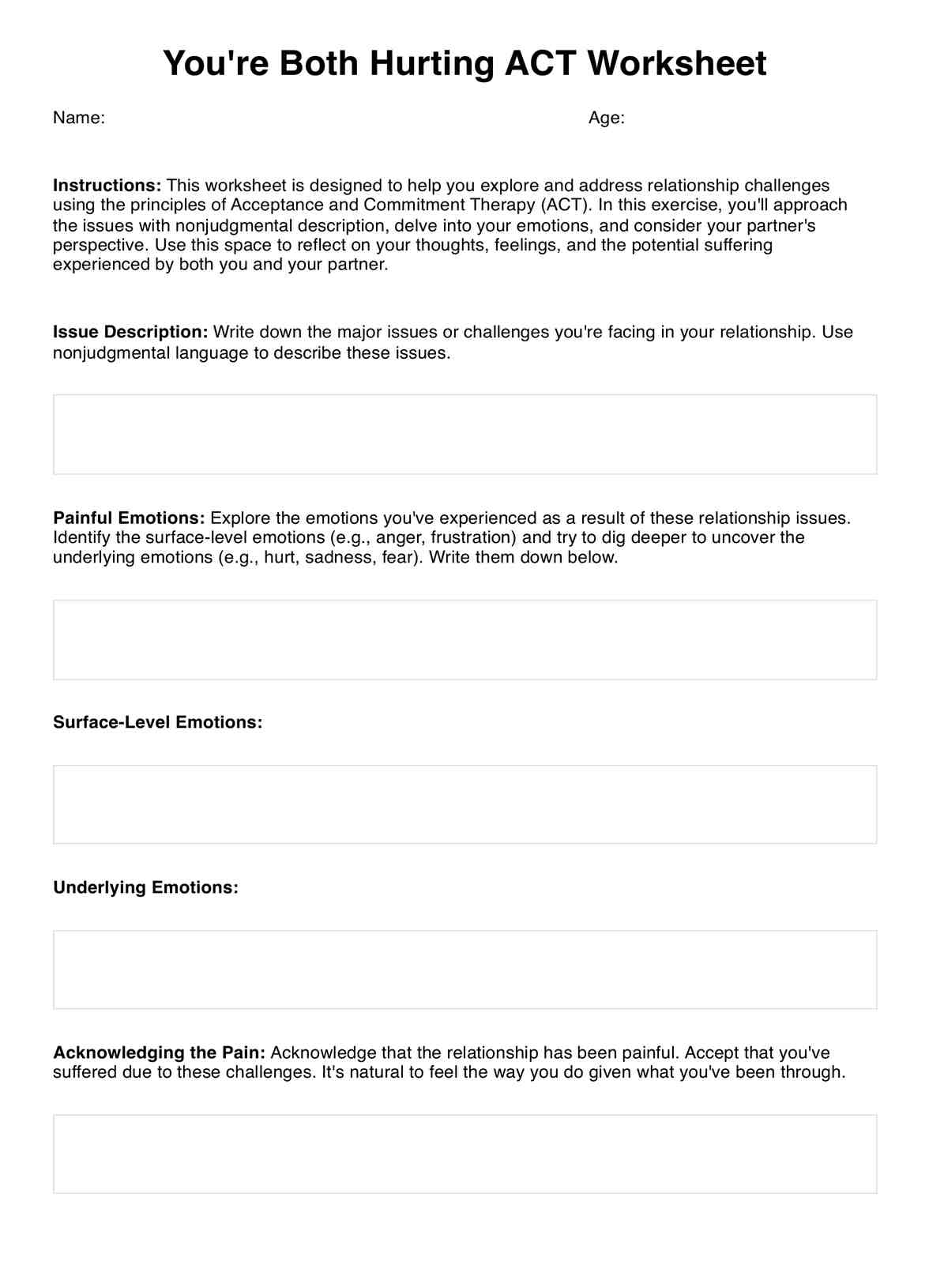
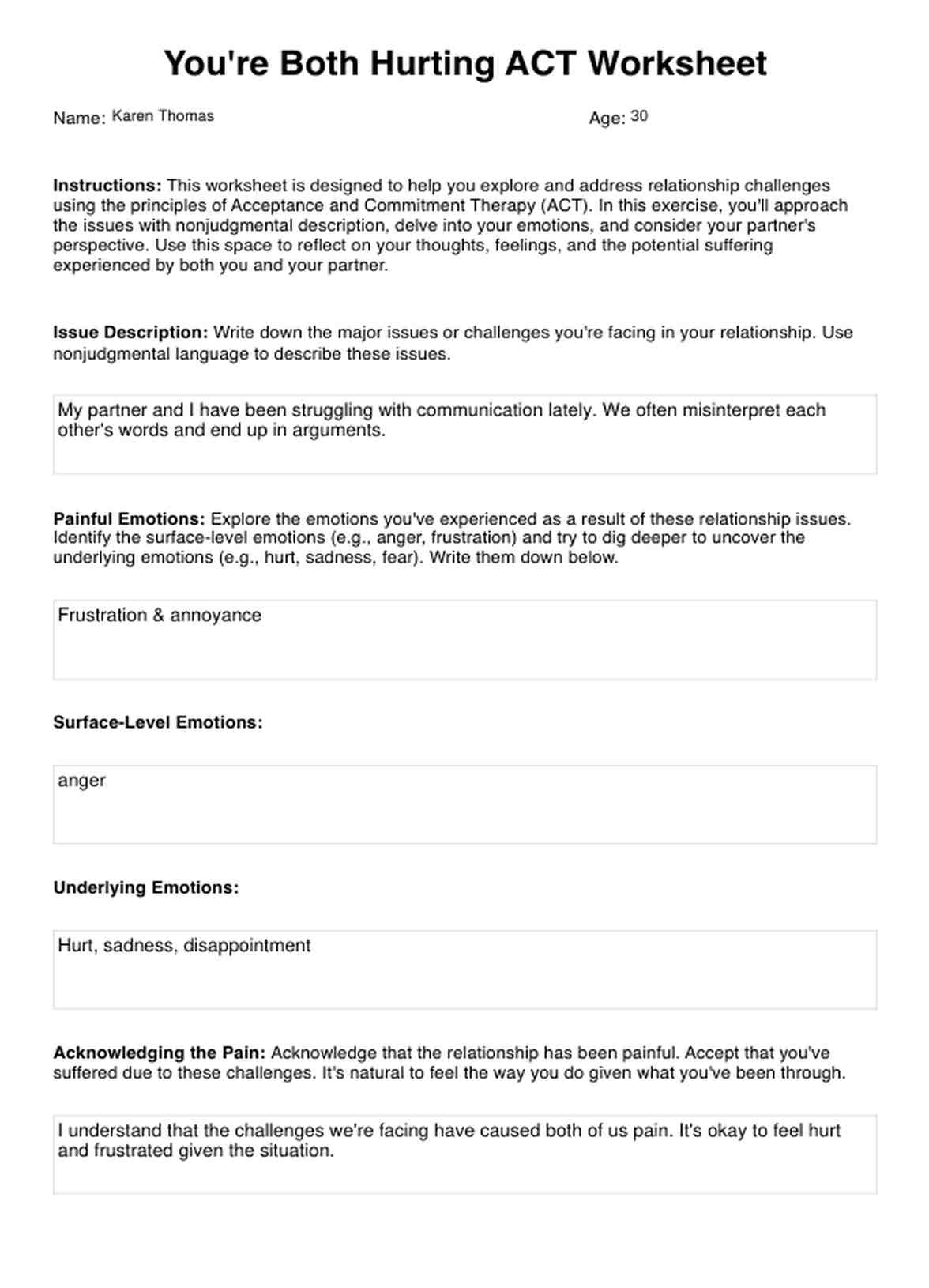















-template.jpg)


